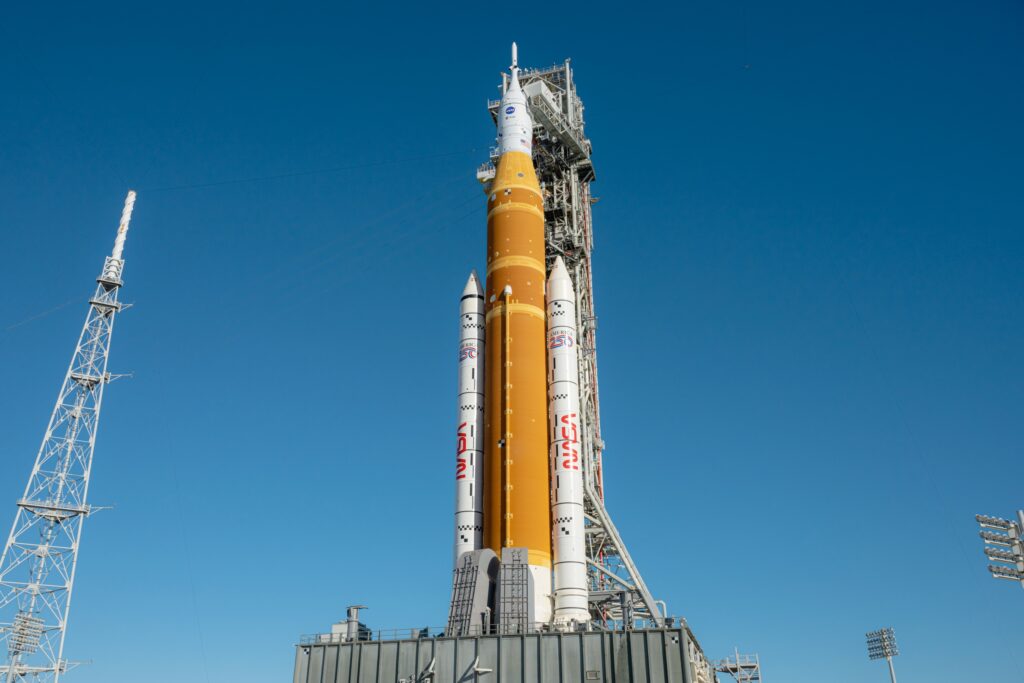Now Reading: Europe’s far-reaching Space Act nears launch
-
01
Europe’s far-reaching Space Act nears launch
Europe’s far-reaching Space Act nears launch


TAMPA, Fla. — Europe is expected to publish a draft law by the end of June to overhaul the regulation of space services, introducing unified rules for companies operating in or selling to the European market.
The Space Act comes as the European Union ramps up space sovereignty efforts amid shifting geopolitical winds, including through ReArm Europe, a more than $900 billion increase in defense spending to reduce reliance on the United States.
While details of the incoming law remain under wraps, legal experts anticipate a move away from voluntary guidance toward binding obligations in key areas such as space sustainability, safety, resilience and security.
“This would be a substantial change from the recent international emphasis on voluntary codes of practice and similar measures,” said John Worthy, a partner at Fieldfisher and head of satellite and space projects at the law firm.
It would stand in contrast to current approaches in the United States and those of the UN Committee on the Peaceful Uses of Outer Space (COPUOS), which tend to favor non-binding codes of good practice over rules with teeth.
Unifying Europe’s fragmented space market
A central aim of the Space Act is to create a cohesive single market for space services in Europe, reducing the administrative burden for businesses that today must navigate a fragmented patchwork of national regulations.
However, whether the legislation actually reduces headaches for space businesses will depend, in particular, on its legal form.
“If the new law is framed as a directive, which sets the overall principles but leaves member states to implement it locally, there will be more wriggle room for member states to apply the law in their own way, which will tend to leave ripples in the legal landscape,” Worthy said.
He pointed to Europe’s NIS2 cybersecurity directive, which left companies with different compliance requirements across EU member states.
“Alternatively, if it is a regulation, which applies directly once adopted by the EU institutions, the result should be a consistent framework across the EU, offering more certainty to space business,” he added.
Worthy said other key questions the Space Act raises for the industry include:
- Will non-EU companies face conflicting legal standards? A U.S. or U.K. operator may follow a voluntary sustainability code at home, but the EU could require strict, enforceable compliance standards as a condition for market access. Businesses will need to tread carefully to ensure they can satisfy both regimes.
- Can the law keep pace with fast-evolving space technologies? With rapid innovation across satellite manufacturing, launch and in-orbit servicing, the law must be future-proof to avoid becoming obsolete soon after enactment.
- Will the Space Act risk driving space business away from the EU? While the aim is likely to balance competitiveness with robust legal safeguards, stricter rules could encourage some companies to relocate to lower-regulation jurisdictions, even if that means exiting the European market.
- How will defense and security-related space activities be treated? The Space Act is expected to align with the EU’s 2023 Space Strategy for Security and Defence, and space suppliers in and outside Europe will be watching closely to see how the law could affect defense procurement opportunities. With Andrius Kubilius recently appointed as the EU’s first commissioner for defense and space, and a fresh U.K.-EU agreement inked in May pledging closer cooperation on space security, a more unified European defense space posture may be taking shape.
Years in the making, the Space Act promises to be a defining moment for Europe’s space ambitions in a domain increasingly tied to global power and security. A transitional period lasting several years is likely before the rules take full effect.
Stay Informed With the Latest & Most Important News
Previous Post
Next Post
-
 01Two Black Holes Observed Circling Each Other for the First Time
01Two Black Holes Observed Circling Each Other for the First Time -
 02From Polymerization-Enabled Folding and Assembly to Chemical Evolution: Key Processes for Emergence of Functional Polymers in the Origin of Life
02From Polymerization-Enabled Folding and Assembly to Chemical Evolution: Key Processes for Emergence of Functional Polymers in the Origin of Life -
 03Astronomy 101: From the Sun and Moon to Wormholes and Warp Drive, Key Theories, Discoveries, and Facts about the Universe (The Adams 101 Series)
03Astronomy 101: From the Sun and Moon to Wormholes and Warp Drive, Key Theories, Discoveries, and Facts about the Universe (The Adams 101 Series) -
 04Φsat-2 begins science phase for AI Earth images
04Φsat-2 begins science phase for AI Earth images -
 05Hurricane forecasters are losing 3 key satellites ahead of peak storm season − a meteorologist explains why it matters
05Hurricane forecasters are losing 3 key satellites ahead of peak storm season − a meteorologist explains why it matters -
 06Thermodynamic Constraints On The Citric Acid Cycle And Related Reactions In Ocean World Interiors
06Thermodynamic Constraints On The Citric Acid Cycle And Related Reactions In Ocean World Interiors -
 07Binary star systems are complex astronomical objects − a new AI approach could pin down their properties quickly
07Binary star systems are complex astronomical objects − a new AI approach could pin down their properties quickly


















